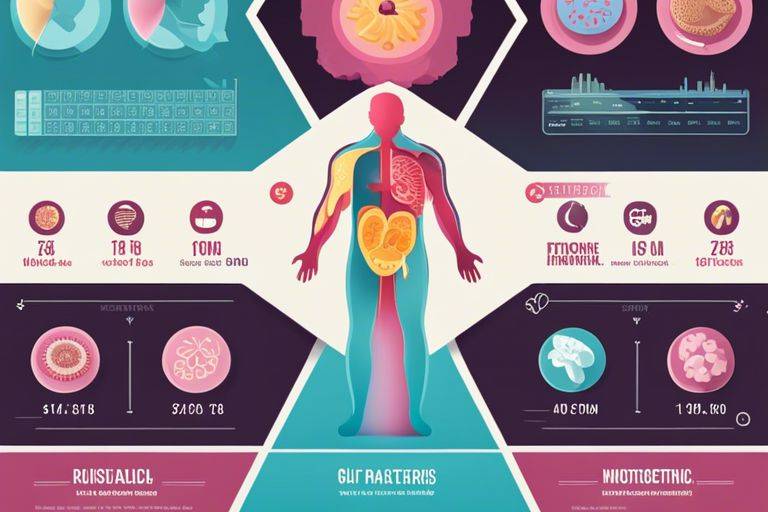You may not realize it, but your gut has a powerful influence on your emotions. The connection between your gut and brain is a fascinating field of study, shedding light on how what you eat can impact how you feel. Research has shown that the gut-brain axis plays a crucial role in regulating emotions, stress responses, and even mental health. To dive deeper into this topic, check out Gut Signals and Gut Feelings: Science at the Interface …
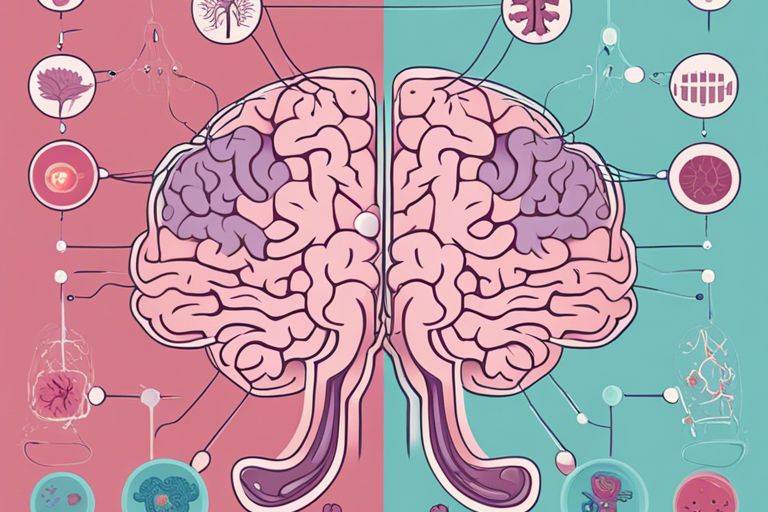
Key Takeaways:
- Gut-Brain Axis: There is a direct link and constant communication between the gut and the brain, known as the gut-brain axis.
- Emotional Influence: The gut can influence emotions and mood through the production of neurotransmitters like serotonin and dopamine.
- Microbiome Impact: The gut microbiome plays a crucial role in regulating the gut-brain axis and can affect emotional well-being.
- Inflammation Connection: Inflammation in the gut can trigger a response in the brain, leading to mood disorders and cognitive issues.
- Diet Matters: The type of diet you consume can have a significant impact on your gut health and consequently, your emotional state.
- Stress Response: Stress and emotional states can influence gut health, leading to a bidirectional relationship between the gut and the brain.
- Therapeutic Potential: Understanding the gut-brain axis opens up new avenues for therapeutic interventions, such as probiotics and dietary changes.
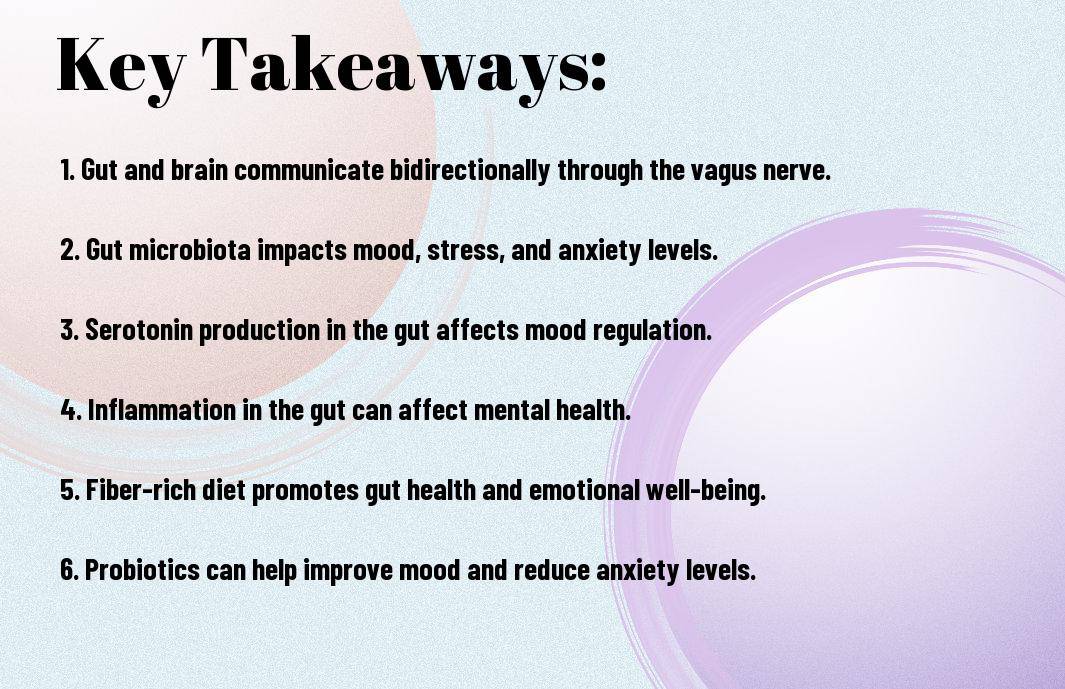
The Gut-Brain Connection
While we often think of the brain as the command center for our emotions and thoughts, it’s fascinating to realize that the gut plays a crucial role in shaping our mental state. The gut-brain axis is the bidirectional communication system that links the emotional and cognitive centers of the brain with peripheral intestinal functions.
The Vagus Nerve: A Highway of Communication
For the gut and brain to communicate effectively, they rely on the vagus nerve. This long nerve acts as a direct pathway for sending signals back and forth between the gut and the brain, influencing mood, stress levels, and even cognitive functions.
Neurotransmitters: The Chemical Messengers
An integral part of this communication network is the role of neurotransmitters. These chemical messengers are produced in the gut and directly impact brain function and mood. An imbalance in neurotransmitters like serotonin and dopamine can lead to issues such as anxiety, depression, and even irritable bowel syndrome.
For instance, an imbalance in serotonin levels can lead to mood disorders like depression. This highlights the importance of maintaining a healthy gut to support optimal neurotransmitter production, ensuring a positive impact on your mental well-being.
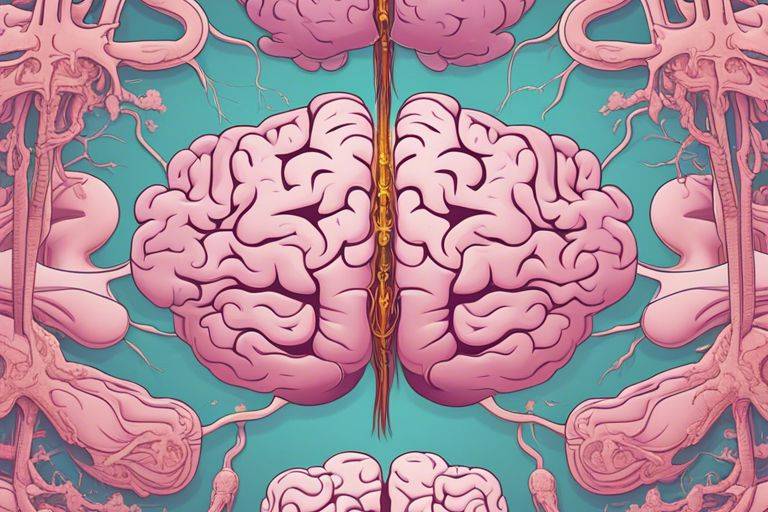
The Gut Microbiome’s Role
The Microbiome’s Influence on Mood
There’s a fascinating connection between the gut microbiome and your mood. Research has shown that the bacteria in your gut can influence the production of neurotransmitters like serotonin, which play a crucial role in regulating mood and emotions. By producing these neurotransmitters, gut bacteria can directly impact how you feel on a day-to-day basis.
The Impact of Gut Bacteria on Emotional Regulation
Any imbalances in the gut microbiome can lead to disruptions in emotional regulation. Studies have linked dysbiosis (an imbalance of gut bacteria) to conditions like anxiety, depression, and even neurodevelopmental disorders. Influence on emotional regulation by gut bacteria is an emerging area of research that holds significant implications for mental health.
Role
IThe gut microbiome’s role in emotional regulation is crucial and revolves around the intricate interplay between gut bacteria and the brain. These bacteria can produce substances that act on the nervous system, influencing not only mood but also stress responses and cognitive function. The balance of these microbes is necessary for maintaining mental well-being, highlighting the importance of gut health for overall emotional health.
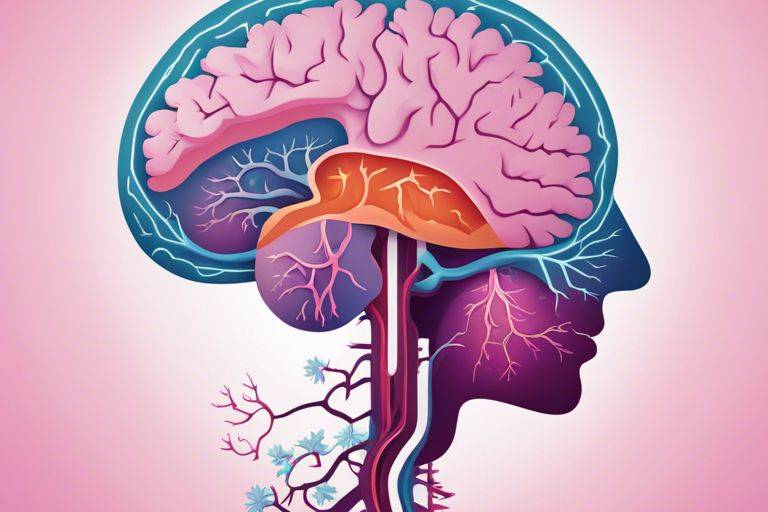
Gut Health and Emotional Well-being
The Link Between Gut Inflammation and Depression
Many studies have shown a strong association between gut inflammation and depression. With an unhealthy gut, the balance of good and bad bacteria can be disrupted, causing inflammation. This inflammation can lead to an increase in stress hormones and ultimately impact your mood and mental health.
The Anxiety-Gut Connection
Many researchers have found a direct correlation between anxiety and the health of your gut. The gut is often referred to as the “second brain” due to its extensive network of neurons that communicate with the brain. A disruption in the gut microbiome can send signals to the brain that trigger anxiety and other emotional responses.
A healthy gut, on the other hand, can produce neurotransmitters like serotonin, which are vital for regulating mood and reducing anxiety. Taking care of your gut health through a balanced diet and probiotics can have a significant positive impact on your emotional well-being.
I believe it is fascinating how our gut health can play such a crucial role in our emotional well-being. Understanding the science behind the gut-brain axis can empower you to make informed choices for your overall health. Be mindful of, taking care of your gut is not just about physical health but also about maintaining a positive state of mind.
The Gut’s Influence on Cognitive Function
The Gut-Brain Axis and Memory
Now, the gut-brain axis plays a crucial role in memory formation and retention. The connection between the gut and the brain is bidirectional, with signals passing back and forth. Gut microbiota can influence neural pathways and neurotransmitters in the brain, impacting memory processes. Ensuring a healthy gut environment through a balanced diet and probiotics can enhance cognitive function and memory.
The Impact of Gut Health on Focus and Concentration
Impact, did you know that your gut health can significantly impact your focus and concentration levels? A healthy gut environment supports the production of neurotransmitters like serotonin and dopamine, which are crucial for regulating mood and cognitive function. Imbalances in gut bacteria can lead to inflammation and cognitive impairments, affecting your ability to concentrate and focus on tasks.
Gut-Brain: Research has shown that gut health can influence the production of brain-derived neurotrophic factor (BDNF), a protein that promotes the growth of new neurons and enhances cognitive function. By maintaining a diverse gut microbiome through a diet rich in fiber and fermented foods, you can support optimal brain health and cognitive performance.
The Role of Diet in Gut-Brain Health
The Effects of Processed Foods on Gut Health
Keep in mind that what you eat plays a crucial role in the health of your gut-brain axis. An excessive consumption of processed foods high in sugar, artificial additives, and unhealthy fats can disrupt the balance of good and bad bacteria in your gut. This imbalance can lead to inflammation, which can negatively impact your mood and cognitive functions.
The Benefits of a Balanced Diet for Emotional Well-being
The key to supporting a healthy gut-brain axis lies in maintaining a balanced diet rich in fiber, fruits, vegetables, lean proteins, and healthy fats. The foods you consume have a direct impact on the diversity and health of your gut microbiota, influencing your emotional well-being as well. A diet that nourishes your gut with nutrient-dense foods can help maintain a positive mood and boost cognitive function.
Benefits: By choosing whole, unprocessed foods and incorporating a variety of nutrients into your meals, you can support a diverse microbiome that promotes a healthy gut-brain axis. Consuming foods rich in probiotics and prebiotics can further enhance the balance of gut bacteria, improving your emotional resilience and overall well-being.
Stress and the Gut-Brain Axis
The Impact of Chronic Stress on Gut Health
Health – Chronic stress can wreak havoc on your gut health. When I’m constantly stressed, my body releases hormones like cortisol, which can disrupt the balance of bacteria in my gut. This imbalance can lead to inflammation, digestive issues, and a weakened immune system.
The Gut’s Response to Acute Stress
To – Acute stress triggers a rapid response in my gut. When you are faced with a sudden stressful situation, your gut goes into overdrive. It can lead to symptoms like stomach cramps, diarrhea, or a “knot” in your stomach. The gut-brain axis is on high alert during acute stress, impacting your digestive system almost instantly.
Acute – This immediate reaction is a survival mechanism designed to help me deal with the perceived threat. However, **prolonged** episodes of acute stress can have detrimental effects on my gut health, leading to long-term issues if not managed effectively.
Conclusively
As I research deeper into the intricate world of the gut-brain axis, I am amazed by the profound impact our gut health has on our emotions and overall well-being. Understanding this connection can revolutionize how we approach mental health and self-care. To expand our comprehension further, I recommend delving into this fascinating article on gut feelings from Harvard University. Let’s continue exploring the incredible science behind our gut’s influence on our emotions.
FAQ
Q: What is the gut-brain axis?
A: The gut-brain axis is a bidirectional communication system between the gut and the brain, involving neural, hormonal, and immune signaling mechanisms.
Q: How does the gut influence emotions?
A: The gut influences emotions through the production of neurotransmitters like serotonin and the modulation of the immune system, which can impact mood and emotional well-being.
Q: What role do gut bacteria play in the gut-brain axis?
A: Gut bacteria, also known as the gut microbiota, play a crucial role in the gut-brain axis by producing neurotransmitters, regulating the immune system, and influencing brain function.
Q: Can gut health affect mental health?
A: Yes, gut health can affect mental health. Research suggests that imbalances in the gut microbiota may contribute to conditions like anxiety, depression, and stress.
Q: How can I improve my gut health to support my emotional well-being?
A: You can improve your gut health by consuming a balanced diet rich in fiber, fermented foods, and prebiotics, managing stress levels, getting regular exercise, and taking probiotic supplements if needed.
Q: Are there specific foods that can help support gut health and emotional balance?
A: Yes, foods like yogurt, kefir, sauerkraut, kimchi, kombucha, and fiber-rich fruits and vegetables can support gut health and emotional balance by promoting the growth of beneficial gut bacteria.
Q: How long does it take to notice improvements in emotional well-being by improving gut health?
A: The timeline for noticing improvements in emotional well-being by improving gut health varies from person to person. Some individuals may notice changes within a few weeks, while for others, it may take longer. Consistency is key to seeing long-term benefits.



